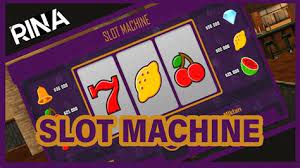Casinos have long been a staple of both popular culture and the ufo777 real world, blending high-stakes gambling with extravagant entertainment. From their historical origins to their modern-day iterations, casinos offer a fascinating glimpse into human behavior, economics, and entertainment.
Historical Origins
The concept of gambling is ancient, with evidence of games of chance dating back to the early civilizations of Mesopotamia, Egypt, and China. However, the modern casino, as we know it, began to take shape in 17th-century Italy. The term “casino” itself comes from the Italian word for a small villa or summerhouse, and it was in these settings that early forms of gambling were practiced.
The first true casino, known as the Casino di Venezia, was established in Venice in 1638. It offered a range of games, including the card game “bassetta,” and quickly became a popular venue for the Venetian elite. This concept of an exclusive gambling house would spread across Europe, eventually making its way to the Americas.
The Evolution of Casinos
As casinos spread worldwide, their design and operations evolved. The 19th century saw the rise of casino resorts, with the Monte Carlo Casino in Monaco becoming a symbol of luxury and opulence. This era also marked the introduction of classic casino games such as roulette, blackjack, and poker, which remain popular today.
In the United States, the gaming industry experienced significant changes with the advent of Las Vegas. The city, once a small desert town, transformed into the gambling capital of the world during the mid-20th century. The combination of legalized gambling and lavish entertainment created a unique environment that drew visitors from around the globe.
Modern Casinos: Beyond Gambling
Today’s casinos are not just about gambling; they are multi-faceted entertainment complexes. Modern casinos often feature a range of attractions, including high-end restaurants, luxury hotels, shopping centers, and live performances. This diversification has helped casinos cater to a broader audience and create a more inclusive experience.
Technological advancements have also revolutionized the casino industry. Online casinos and mobile gaming apps allow players to experience the thrill of gambling from the comfort of their homes. Virtual reality and augmented reality are beginning to offer immersive gaming experiences, further blurring the lines between the digital and physical worlds.
The Cultural Impact of Casinos
Casinos have had a significant impact on culture, influencing everything from fashion to film. Hollywood has long been fascinated by the glamorous world of casinos, with films like “Casino Royale” and “Ocean’s Eleven” capturing the excitement and intrigue of gambling. The portrayal of casinos in popular media often reflects and reinforces their cultural significance as symbols of wealth and chance.
The casino industry has also been a major driver of economic development in many regions. The growth of casino resorts has led to job creation, increased tourism, and infrastructure development. However, this growth has not been without controversy. Issues such as gambling addiction, the potential for criminal activity, and the social impact on local communities are ongoing concerns that require careful management.
Conclusion
Casinos continue to be a dynamic and influential force in the world of entertainment and beyond. Their evolution from historical gambling houses to modern entertainment hubs reflects broader changes in society and technology. As they adapt to new trends and challenges, casinos will undoubtedly remain a significant part of the global cultural and economic landscape.

